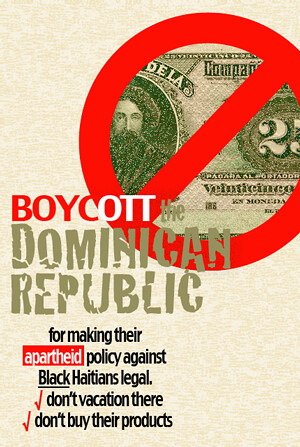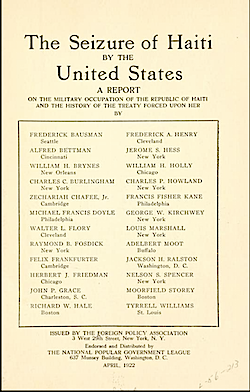 What did McCain really mean during the debate last night when he said that he identified with his hero Teddy Roosevelt who said, "Speak softly and carry a big stick?"
What did McCain really mean during the debate last night when he said that he identified with his hero Teddy Roosevelt who said, "Speak softly and carry a big stick?""Big Stick Ideology, or Big Stick Policy, is a form of hegemony and was the slogan describing U.S. President Theodore Roosevelt’s corollary to the Monroe Doctrine. The term originated from the phrase “Speak softly and carry a big stick; you will go far,” a West African proverb. The term is used to describe the foreign policy of the U.S. At the time, Roosevelt claimed the U.S. had the right to oppose European actions in the Western Hemisphere. The U.S., he said, also had the right to intervene economically and militarily in the domestic affairs of its neighbors if they proved incapable of maintaining peace and sovereignty on their own. The U.S. has Stick diplomacy several times, particularly during Roosevelt’s presidency and when the nation wanted to build a canal across Central America."Traditionally, U.S. politicians have used the "Big Stick" phrase to indicate reactionary U.S. foreign policy in the Western Hemisphere. Now, with the advent of the so-called Bush Doctrine of preemptive war, a new, more expansive role is assumed by the U.S. that calls for geopolitical transformation. This new world view is articulated by the small group of right-wingers who formed Project for a New American Century.
Bid Stick Ideology
Wikipedia
During Bush Sr.'s administration, members of PNAC advocated the outright invasion of Iraq ("the first battle of the fourth world war" --James Woolsey of PNAC), seizure by Israel of the West Bank and Gaza Strip, and the toppling of the governments of Syria, Lebanon, Saudi Arabia, and Iran.
PANIC's (sic) principle commitment is "dedicated to building up the power of the United States to unparalleled levels." Many of the PANIC men (Dick Cheney, Donald Rumsfeld, I. Lewis Libby, Paul Wolfowitz, Zalmay Khalilzad and Elliot Abrams) came to hold positions of power and influence in George W. Bush's administration.
"The new National Security Doctrine suggested that the U.S. had the right to discourage other nations from building up their military power and could act "to dissuade potential adversaries from pursuing a military buildup in hopes of surpassing, or equaling, the power of the United States." This included the new explicit policy of "pre-emptive" war whenever the U.S. feels threatened: "America will act against such emerging threats before they are fully formed." What is more, the new American edict told other nations that the conservative economic objectives of the Republican Party were policies that should be implemented throughout the whole world. The list included the following requirements: "pro-growth legal and regulatory policies to encourage business investment, innovation, and entrepreneurial activity; tax policies-particularly lower marginal tax rates-that improve incentives for work and investment... strong financial systems that allow capital to be put to its most efficient use; sound fiscal policies to support business activity... and free trade that provides new avenues for growth and fosters the diffusion of technologies and ideas that increase productivity and opportunity."PANIC's quest "to accept responsibility for America's unique role in preserving and extending an international order friendly to our security, our prosperity, and our principles" has no doubt been primarily responsible for the deregulation, privatization and trade policies that are currently negatively impacting the world financial markets.
This new foreign policy was the basis for the speech that Bush made to the United Nations in September of 2002. He told them that the United States was ready to go it alone in the world if the U.N. did not join his preemptive war. The U.S. would take any action that it deemed necessary, against Iraq or anyone else. His administration was making preparations to act quickly and decisively by shedding its various multilateral constraints.
Robbing Us Blind
by Steve Brouwer
John McCain appears to be pulling back from this "total world domination" doctrine for a nostalgic time when U.S. foreign policy operated undercover, so to speak. The "Big Stick" corollary for John McCain is to use his mate and running mate to personally attack his opponent Barack Obama as McCain attempts to climb back up in the polls.
It is ironic that the Monroe Doctrine's purpose was to prevent intervention in the internal affairs of Latin American countries by Europeans. What it really did was give the U.S. "justification" to intervene and "police" Latin America. The Roosevelt "Big Stick" corollary sought to justify U.S. intervention whenever the American government thought it was necessary.
For Haitians, this intervention saw their democratically elected president isolated by an aid and loan blockade, and ultimately the Haitian president was intimidated and kidnapped. Haiti was declared a "failed state", facilitating a brutal UN military occupation.
When you look at the world economic crisis that has resulted from the U.S. doctrine of "total world domination", the instinct is to say--how the mighty have fallen, on their big stick.





No comments:
Post a Comment